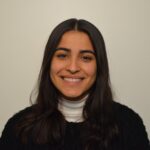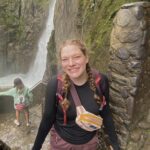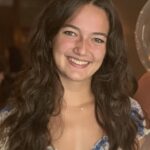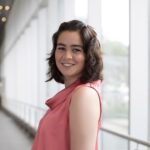The Victoria Finnerty Travel Award supports conference-attendance costs for undergraduate GSA members who presented research at the Annual Drosophila Research Conference. #Dros24 will be held in conjunction with other model organism meetings at TAGC 2024 in the Washington, DC, metro area and online from March 6–10, 2024.
Victoria Finnerty, who died in February 2011, was a long-time member of the Genetics Society of America and served the Drosophila community and the genetics community at large in many capacities. A wonderful geneticist, Vickie’s ground-breaking work as a graduate student used high-resolution recombination analysis to dissect gene structure. This set the stage for a 35-year career in which she excelled as a gifted teacher as well as research scientist. Vickie was also a wise and compassionate mentor and teacher for whom interactions with her students was a constant joy. She constantly sought new ways to engage undergraduates in their genetics courses and in research; this travel fellowship fund continues Vickie’s stellar example.

An Bui, University of Houston
My research is to determine if brat brain tumor genes in Drosophila melanogaster flies play a role in controlling transposable elements, which can cause sterility if left uncontrolled.

Miraz Sadi, University of Rochester
I am interested in centromere evolution in Drosophila.

Makayla Gomperts, University of Evansville
I am interested in studying cell fate during egg development in Drosophila melanogaster.

Maria Jose Orozco Fuentes, Lake Forest College
I study the role of a subunit of the ER-membrane protein complex (EMC) in glial cells during development and adulthood.

Ahad Shabazz-Henry, Kean University
I am investigating the molecular mechanisms that regulate animal development and fertility in Drosophila.

Kayla Ly, University of California, Irvine
My research aims to discover novel genes contributing to transposable element-mediated heterochromatin formation in Drosophila melanogaster.

Kinfe Bankole, University of Florida
I am exploring the secrets hidden within sex and species specific alternative splicing of transcripts.

Lucy Grossman, University of North Carolina, Chapel Hill
I study how the proteins that package DNA are recruited to and deposited at their target locations.

Lindsay Swain, East Carolina University
My research uses fruit flies as a model organism to study how a steroid hormone influences cell-to-cell communication in the ovary.

William Outlaw, East Carolina University
My research uses fruit flies as a model organism to study how nucleocytoplasmic trafficking facilitates the maintenance of ovarian germline stem cells.

Sarah Clark, University of Richmond
I study the effects of the acetyltransferase Tip60 protein on disease pathology in a Drosophila model of Machado-Joseph disease/Spinocerebellar Ataxia Type 3.

Sofia Karter Lopez, University of Toronto
In my project I study the mechanisms by which cells in the Drosophila embryo move together to close wounds and how protein recycling contributes to the cytoskeletal rearrangements that are required during wound healing.



